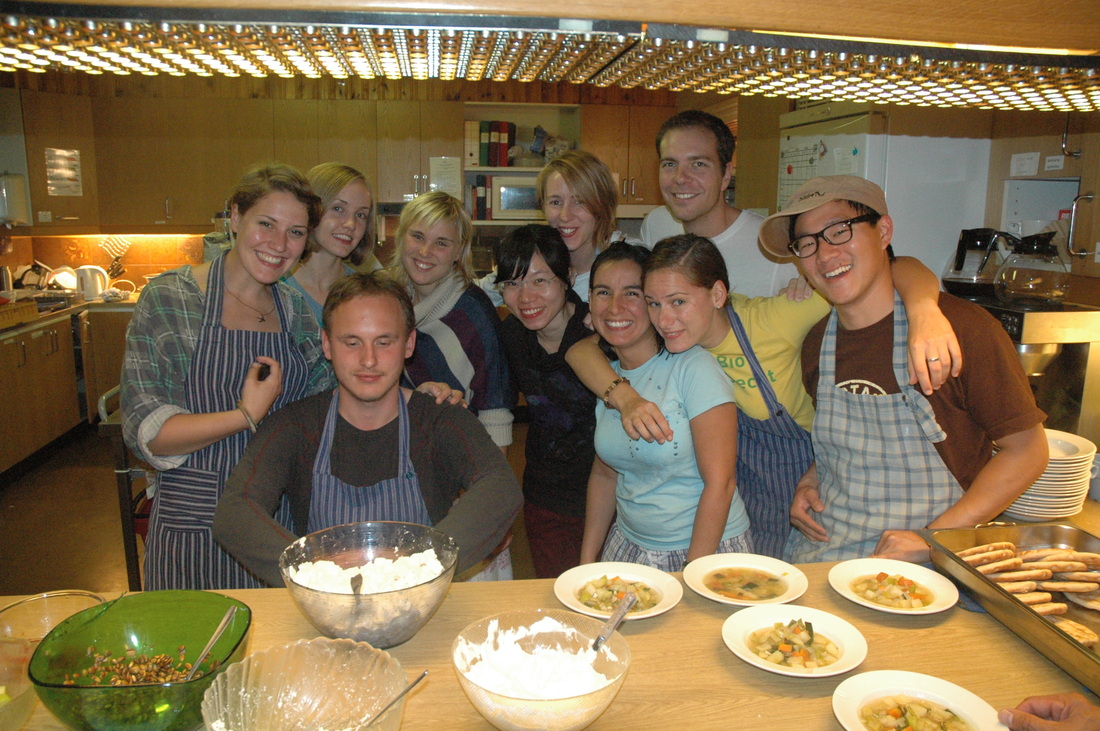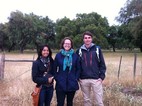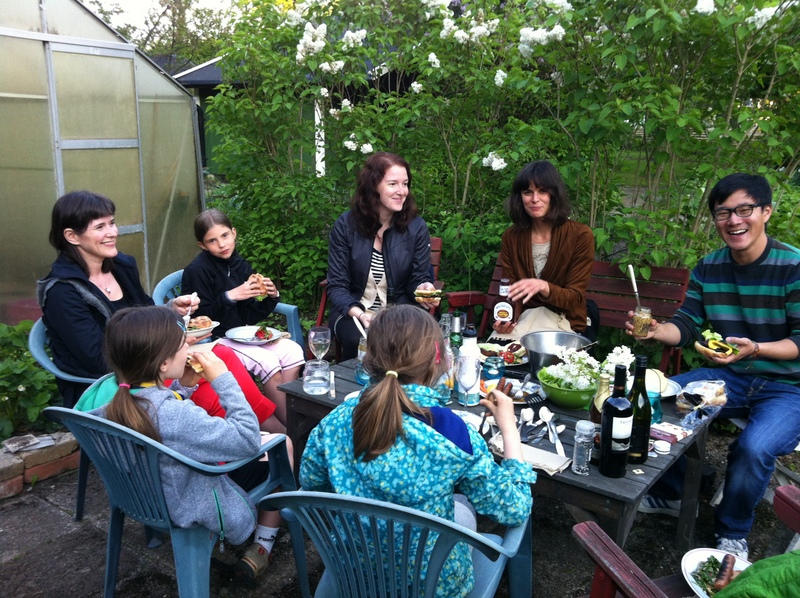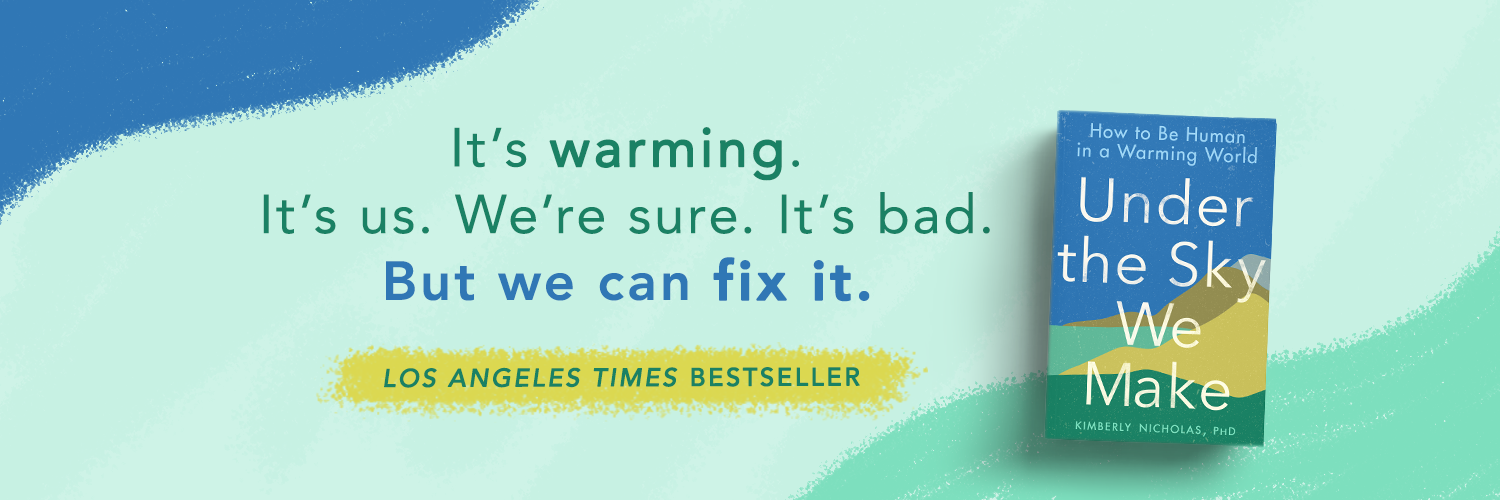Teaching
|
I currently teach the foundational natural science course in the LUMES program, Earth Systems Science. We focus on developing skills in scientific research and experimental design, quantitative data analysis in the open-source statistical programming language R, and scientific writing through learning about the biophysical basis and functioning of the Nine Planetary Boundaries (Rockström et al., 2009).
Under the previous LUMES curriculum, I taught the courses Environmental Problem Awareness (2011, 2012), Rural Systems and Sustainability (2010, 2011, 2012, 2013), and the module Quantiative Methods in Sustainability (2011, 2012, 2013). With Stefan Anderberg, I co-taught a course in Global Climate and Environmental Change through the summer Global Collaborative Program at Kyung Hee University in South Korea in 2012. |
Scholarship of teaching and learning
I am currently piloting a peer writing tutor program in collaboration with Ladaea Rylander of the Lund University Academic Support Centre. We will be running this program for the first time in LUMES in Fall 2014. Please check back for results!
I have been active in pedagogical training at Lund University, where I have participated in the Docent course at LTH, focusing on best practices in graduate student supervision and mentoring. As a part of this course, I designed and led a team research project using a survey (N=123) to evaluate how well PhD students at Lund and Malmö Universities met the national learning objectives of Swedish PhD education. The resulting report is available here.
I have also participated in two courses through the Lund University Centre for Educational Development emphasizing student-centered learning and theories of knowledge acquisition and application and the use of constructive alignment in curriculum design. Through these courses, I have redesigned teaching activities and the course curriculum for my Earth Systems Science course (my analysis for this course project using curricular alignment can be downloaded here). One outcome is an increased use of rubrics for assessing writing, which I find (and research also shows) both increases student learning and improves writing, and makes assessment faster and easier. I have written a short rubric for a general academic essay, as well as a rubric for writing natural science papers analyzing original data, and a detailed rubric for writing a natural science paper. I'd be very happy if these are of use to others- and feedback on these is welcome!
I have been active in pedagogical training at Lund University, where I have participated in the Docent course at LTH, focusing on best practices in graduate student supervision and mentoring. As a part of this course, I designed and led a team research project using a survey (N=123) to evaluate how well PhD students at Lund and Malmö Universities met the national learning objectives of Swedish PhD education. The resulting report is available here.
I have also participated in two courses through the Lund University Centre for Educational Development emphasizing student-centered learning and theories of knowledge acquisition and application and the use of constructive alignment in curriculum design. Through these courses, I have redesigned teaching activities and the course curriculum for my Earth Systems Science course (my analysis for this course project using curricular alignment can be downloaded here). One outcome is an increased use of rubrics for assessing writing, which I find (and research also shows) both increases student learning and improves writing, and makes assessment faster and easier. I have written a short rubric for a general academic essay, as well as a rubric for writing natural science papers analyzing original data, and a detailed rubric for writing a natural science paper. I'd be very happy if these are of use to others- and feedback on these is welcome!
Letters of Reference
I'm generally happy to write letters of reference for current and former students, given reasonable notice and enough information to do a good job! Students requesting letters from me, please follow instructions here. Thanks!
student Supervision
|
Current PhD Students
I currently co-supervise two PhD students in the Lund University Centre of Excellence for Integration of the Social and Natural Dimensions of Sustainability, LUCID. Emma Johansson PhD Candidate in Physical Geography (co-supervised with Jonathan Seaquist). Dissertation: “Virtual land and water: Social and environmental consequences on local to global scales.” Expected completion: August 2017. Molly MacGregor PhD Candidate in Sustainability Science (co-supervised with Lennart Olsson). Dissertation: “Land dynamics of coffee.” Expected completion: August 2015. Current MSc students and thesis titles
6. Marius von Essen. "Conventional vs. sustainable land management in the Montados: An economic comparison and its contribution to landscape preservation." 5. Shrina Kurani. "Tourists and ecosystem services in the Balearic Islands." 4. Luisa Suarez: “We are what we eat: Investigating enabling factors for dietary change and sustainable diets in Skåne.” 3. Aurora Lindström: “Urban beekeeping and social entrepreneurship in Sweden.” 2. Nadia Karami: “The Swedish consumer’s guide to the environmental impact of dietary choices.” 1. Rhianna Dean: “The lot of the farmer: Climate change adaptation in the Victorian wine industry.” |


















